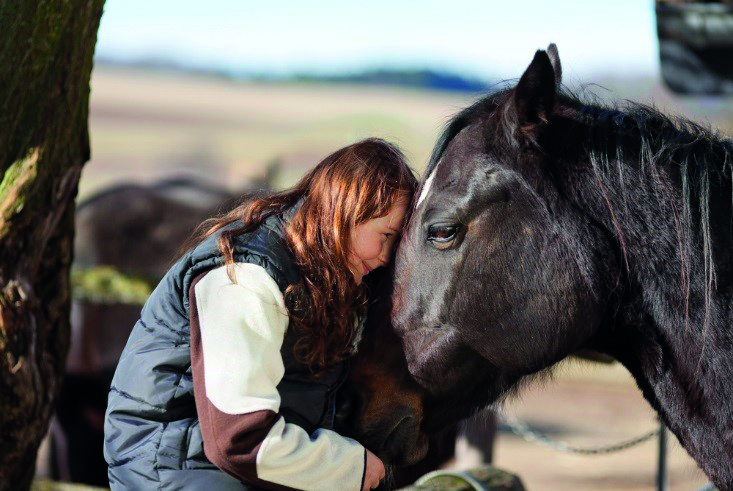
by Staff writer
How Animal Assisted Psychotherapy can offer unique benefits in clinical recovery
Of all the therapeutic models that we have available to us at JSA Psychotherapy, one that really sets us apart as a practice is our use of Equine and Animal Assisted Psychotherapy.
AAP is a form of clinical psychotherapy that involves animals, typically horses, in the client’s recovery process. For many people, interacting with animals has often demonstrated itself to be an excellent way of regulating emotions, which makes the process of engaging with therapy much easier as a result. This is especially true for clients who struggle to engage with talking therapy. This term refers to sessions that incorporate more directive therapeutic models, such as CBT or DBT, that focus on challenging the client’s belief systems, coping mechanisms and perspectives on life.
Instead, this model follows a non-directive method, in which the client is attributed with the agency to lead the session according to their own impulses and needs. In this scenario, the clinician is responsible for following the client’s progress and providing guidance and support where necessary. Non-directive and psychodynamic intervention is most commonly employed when working with young children, who are unlikely to have developed the mature critical thinking skills necessary to undergo the complex reframing techniques involved in talking therapy. This follows the same principles as models such as Play Therapy.
However, even adults can find it inherently challenging to undergo directive therapy in certain circumstances. For example, it may be the case that the client’s issues originate with a deeply repressed trauma that they are unable to confront in this way. With the right techniques however, the therapist can help to draw it out in a safe environment, where they can both resolve it together.
Additionally, sometimes the focal trauma can be ‘preverbal’, which is to say that the traumatic event occurred so early in the client’s life that they had not yet developed the language skills to form words to explain it. Since regressive trauma recovery work requires the client to return to the stage of their life in which the trauma itself can be found, this means in turn that the only way it can be expressed is without words.
The reason that incorporating the use of animals into therapy is so effective for these purposes is because mammalian companion pets such as horses and dogs are empathic enough to easily pick up on how a person is feeling, even if they don’t understand the words that they are saying. As such, they provide this support in a way that is inherently non-judgmental. Since animals can only communicate using nonverbal means, this also makes them great counterparts for assisting clients with preverbal trauma to access and convey their complex emotions.
Animals also demonstrate great promise for supporting clients who experience difficulty when forming healthy emotional attachments. In human society, attachment difficulties can sometimes be masked, or circumvented in adverse ways. For animals, however, they’re an essential factor of all social interaction.
For example, most horses will be spooked by a child who is too excitable or aggressive in wanting to hug or stroke them and will immediately run away. Using this dynamic, the client can be imparted with the patience and emotional resilience to wait for a reciprocated gesture of trust. These are simple skills, but ones that are critically important in adult life, and can cause serious problems in relational health if they aren’t developed.
At JSA Psychotherapy, we are fortunate to have access to several horses for equine work at a local farm, as well as two small dogs for animal assisted therapy sessions. These may take the form of dog walks outside the practice, but sometimes they help by joining in sessions held in our consulting rooms as well. Their presence during clinical psychotherapy can work wonders to help our clients to practice mindful thinking, and achieve the emotional regulation necessary to get the most out of their time with us.
Little Miss Dorothy is a 4-year-old Jack Russell terrier/pug cross and Sylvester Sausage is a miniature dachshund puppy. Both are very affectionate, though Sylvester is quite playful and mischievous, while Dottie is much more laid back and restful in temperament.
If you believe that you, or someone you know may benefit from this form of clinical intervention, or are curious to learn more, please contact us on 01282 685245 or at office@jsapsychotherapy.com



